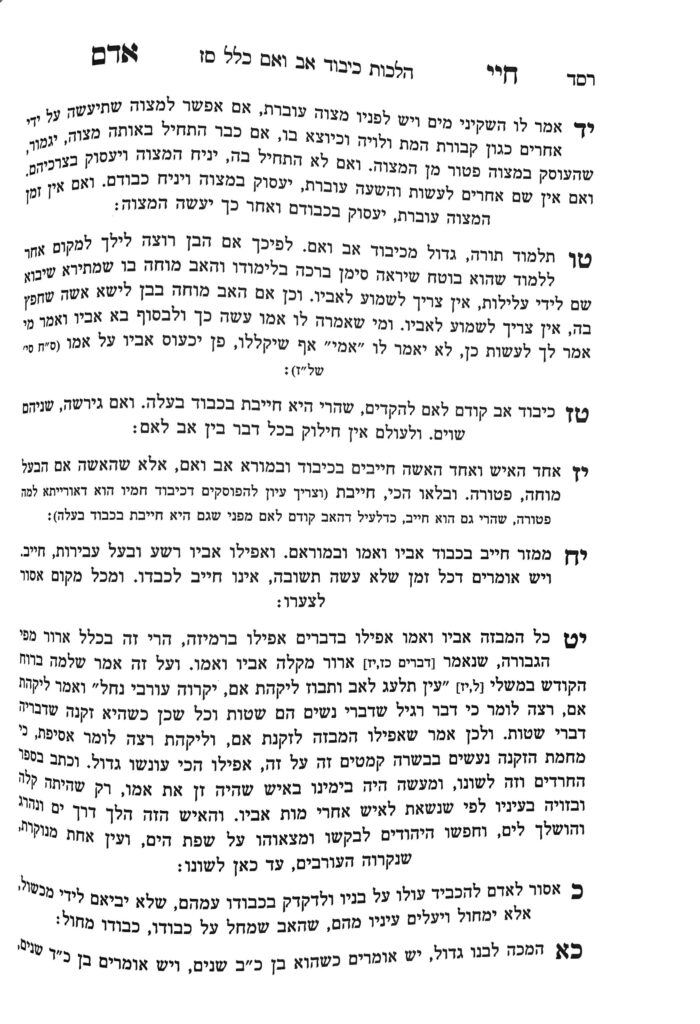We are continuing in siman 15, discussing indirect conflicts between kibud av v’eim and other mitzvos. The Chayei Adam discusses a new case: one’s mother asks a child to do something, and their father subsequently comes in and asks the child who told them to do what they are doing. The child realizes that if they tell their father that they were told to do so by their mother, it will cause discord between their parents. Therefore, the Chayei Adam writes that the child should not tell the father who directed them, even at the expense of the father getting so angry that their father curses them.
This scenario is a classic case of rechilus. If Reuven asks Shimon to supply information which will cause Reuven to be angry at a third person, Shimon is not allowed to divulge that information–even if it is true–because it will cause discord. It is not lashon hara, because it is not false nor necessarily bad, but the fact that it will cause discord means it is rechilus.
Further, the Chofetz Chaim seems to understand that if one shares something true which they do not consider bad but it ends up causing bad to someone else, it falls under lashon hara, because it has caused ra to someone.
In our case, when the father asks the child to divulge, they are causing the child to say rechilus and possibly lashon hara as well. The child is not allowed to divulge, even if it will cause anger towards the child from the father.
The Chayei Adam explains that the source for this halacha is the Sefer Chassidim. The Sefer Chassidim seems to only bring this case in the context of a mother and father. However, if the father asks the child to divulge information about someone else, the father is still asking the child to do an aveirah, and it is assur for the child to supply the information. It is not clear why the Chayei Adam limits the case to the mother.
A similar case involves something happening to a parent, where they wish to vent to the child in a way that they are asking the child to listen to lashon hara. The Chofetz Chaim discusses this case as well. He writes that if the listener knows that by allowing the speaker to vent, they will get it out of their system and stop discussing the incident, and the listener works on themselves to not be mekabel the lashon hara (by being dan l’kaf zechus that there are more details and that they do not know the full picture), it is muttar.
If a parent asks a child to get involved in a situation, if they want the child to get involved in order to make shalom, it is muttar. If they want the child to get involved in order to perpetuate the fight, it is assur.
Thus, the Chayei Adam includes these cases at the end of this siman because these are scenarios where the parents are not asking the child to directly do an aveirah, but are indirectly prodding the child towards an aveirah.
Summary
If a parent asks a child to divulge information about another person which will cause discord between the parent and the other person, it is rechilus, and possibly lashon hara, for the child to divulge the information. Even if the parent will get angry at the child and will curse them, it is still assur.



